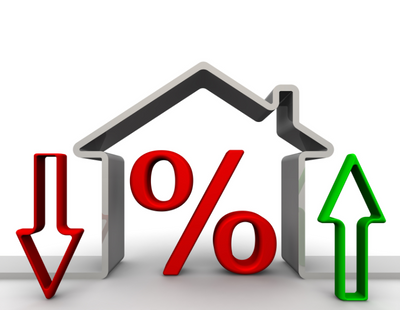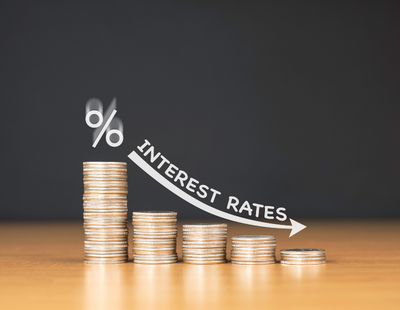A property expert has warned that the Bank of England’s gloomy economic forecasts and last week’s rise in interest rates could dampen sentiment in the housing market.
Alongside the biggest rate hike in 27 years – up to 1.75% from 1.25% - the Bank predicted last week that the UK would enter a recession later this year and not emerge from it until 2024, the longest period of recession since the global financial crisis.
Tom Bill, head of UK residential research at Knight Frank, said: “It was an even more pessimistic forecast than the one it made in May and understandably prompted a wide range of reactions.
“Irrespective of its accuracy, the risk for the housing market is that the prediction itself could dampen sentiment. So, how might buyers and sellers respond to this latest set of numbers?”
According to Savvas Savouri, chief economist at asset manager Toscafund, the first thing to consider is whether the Bank should even be making such forecasts.
“The Office for Budget Responsibility (OBR) is the body created specifically to provide economic forecasts, so this feels like a case of mission creep for the Bank of England,” he said. “Plus, the OBR has a much better track record.”
The OBR’s next set of forecasts will be published in the autumn.
Bill said that underlying most of the reaction was a feeling the Bank is over-compensating for doing too little too late to tame inflation, which it now expects to peak at over 13% later this year.
“Gerard Lyons, chief economic strategist at wealth manager Netwealth, argued that the downbeat message showed the ‘Bank of England is suffering from a self-inflicted credibility gap’. The tone contrasted with the more reassuring message in the face of a similar outlook delivered by the Federal Reserve in the US,” Bill added.
What about the substance of the forecast?
“The Bank of England itself said uncertainty around the outlook is exceptionally high, and the UK’s economic performance could be very different depending on the trajectory of energy prices. Any further stimulus measures by the new government after September have also understandably not been included in the assumptions,” Bill claimed.
In short, he said, the Bank’s latest predictions will ‘undoubtedly cause some hesitation’ in the housing market, but the ‘extent to which its prophecies come true’ will be the real acid test.
“There was also little consensus on what the Bank would do next on rates. Some economists warned it wouldn’t be the last rise of 50 basis points while others forecast cuts next year,” Bill went on.
“For anyone wondering what the latest rise means for mortgage costs, the answer is less open to debate than the Bank’s forecasts. The average cost of a five-year fixed-rate mortgage (75% LTV) has already risen to 3.45% from 1.28% last September and the only way is up after 13 years of ultra-low borrowing costs.”
Bill argued that further increases will dampen demand, but there is unlikely to be a cliff-edge moment for the housing market.
“Mortgage offers typically last for six months and most people are on fixed-rate deals still, which means the impact on demand will be more gradual,” he said.
“For the second time in three months, it is worth remembering that watching what the Bank of England does rather than what it says could prove to be more useful for buyers and sellers.”













.png)


.jpg)
.jpg)





%20-%20IMAGE%20Client%20Accounting%20%E2%80%93%20what%20are%20your%20options.jpg)


.png)
.png)
.png)
%20(002).png)






%20(002).jpg)



.png)




Join the conversation
Jump to latest comment and add your reply
When do we reach the debate of first mortgage offers being worthless?
With conveyancing times becoming laughably long and indeed longer than mortgage offers last we are due a moment where a buyer's offer cannot be believed.
How long before EA's have to keep a property marketed solely because the offer, at time of making may not be attainable by exchange?
If a buyer offers 'x' based upon affordability 'y' then in this current market after many months of conveyancing the second mortgage offer may end up with 'x' being minus 1-3% based upon 'y' now being +5-10% due to higher repayments (from a higher interest rate payable)
This conflation will create a 'first to cross the line' system. This in turn will propagate gazumping and gazundering in equal measure.
The public, most likely will soon say 'I refuse to engage', but only after agony, stress and wasted fees.
This is a very valid point which will have to be managed. Conveyancing really needs to be looked at and modelled alongside legal practices in overseas markets which take a lot quicker from agreed sale to completion. Sometimes we can be a little too old school and pedantic in my opinion.
2008/9 here we go again... down it will go
Please login to comment